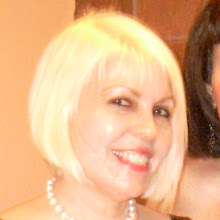I've started reading The First Five Pages, by Naoh Lukeman. The premise of this book is that your book has to grab the reader within the first five pages or forget about it. You're sunk.
A literary agent himself, he knows that editors and literary agents are looking for a reason to reject your book, and if you can avoid making the mistakes he outlines, you just might have a chance. The book is actually arranged in the order of what he looks for in order to dismiss a manuscript.
The second chapter, which was about avoiding unnecessary adjectives and adverbs, was extremely helpful to me. I thought that I knew better than to do this, but in working through the exercises, I found that I had a ton of adjectives and adverbs in the first chapter of my novel. Another exercise had the writer replace any adjectives and adverbs used with interesting ones. So I went through my chapter and did that and found that it improved my writing 100%. What should have been a no-brainer was a very informative experience.
The next section had to do with sound. "Prose can be technically correct but rhythmically unpleasant." I've always thought that having a good sound comes from reading good writing; that you come to subconsciously know what sounds good. Lukeman had some good pointers in this area, such as read your manuscript aloud. Watch out for sentences that don't seem to make sense -- they are poorly constructed. Simplify -- "Even if your sentence sounds great, ask yourself if its meaning is clear to the reader." Watch out for echoes, alliteration, and evoke resonance wherever possible.
The section on the use of comparisons, such as analogies, similes and metaphors was of particular interest to me. I've often thought that these devices separate bland writing from great writing. "A manuscript bereft of comparison usually ends up registering with the reader intellectually, but not emotionally." I know that I feel that in the writing I read.
He tells us that the proper use of comparison enables the writer to cut a lot of description. I have always thought that a telling detail is better than paragraphs of description, and that's what I strive for in my writing. But I hadn't thought about how the good use of similes and metaphors can do the same thing. So I went through my first few chapters and replaced a few descriptions with comparisons.
To be continued . . .
A literary agent himself, he knows that editors and literary agents are looking for a reason to reject your book, and if you can avoid making the mistakes he outlines, you just might have a chance. The book is actually arranged in the order of what he looks for in order to dismiss a manuscript.
The second chapter, which was about avoiding unnecessary adjectives and adverbs, was extremely helpful to me. I thought that I knew better than to do this, but in working through the exercises, I found that I had a ton of adjectives and adverbs in the first chapter of my novel. Another exercise had the writer replace any adjectives and adverbs used with interesting ones. So I went through my chapter and did that and found that it improved my writing 100%. What should have been a no-brainer was a very informative experience.
The next section had to do with sound. "Prose can be technically correct but rhythmically unpleasant." I've always thought that having a good sound comes from reading good writing; that you come to subconsciously know what sounds good. Lukeman had some good pointers in this area, such as read your manuscript aloud. Watch out for sentences that don't seem to make sense -- they are poorly constructed. Simplify -- "Even if your sentence sounds great, ask yourself if its meaning is clear to the reader." Watch out for echoes, alliteration, and evoke resonance wherever possible.
The section on the use of comparisons, such as analogies, similes and metaphors was of particular interest to me. I've often thought that these devices separate bland writing from great writing. "A manuscript bereft of comparison usually ends up registering with the reader intellectually, but not emotionally." I know that I feel that in the writing I read.
He tells us that the proper use of comparison enables the writer to cut a lot of description. I have always thought that a telling detail is better than paragraphs of description, and that's what I strive for in my writing. But I hadn't thought about how the good use of similes and metaphors can do the same thing. So I went through my first few chapters and replaced a few descriptions with comparisons.
To be continued . . .

